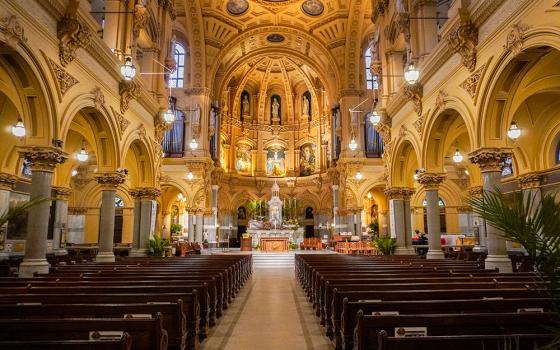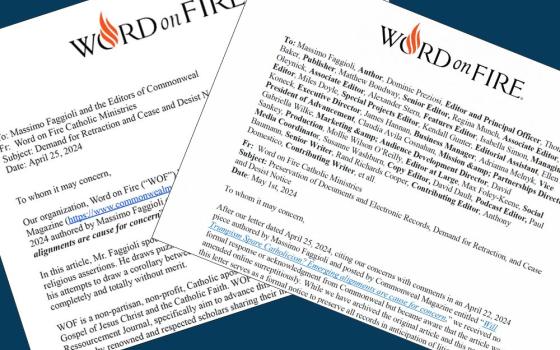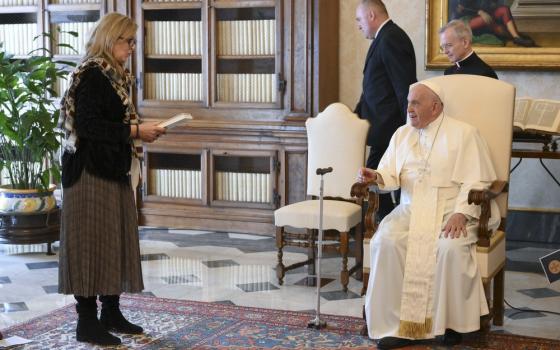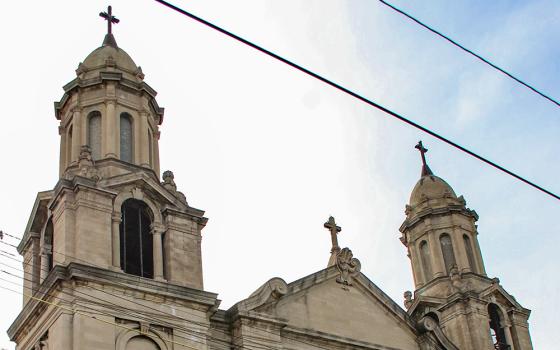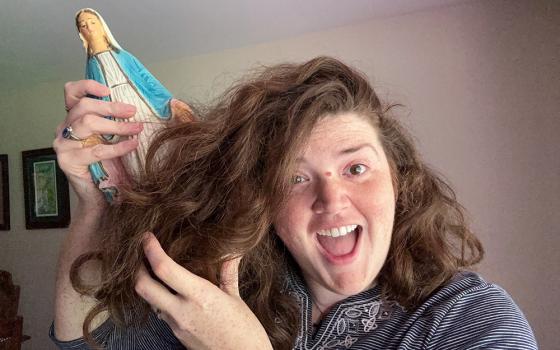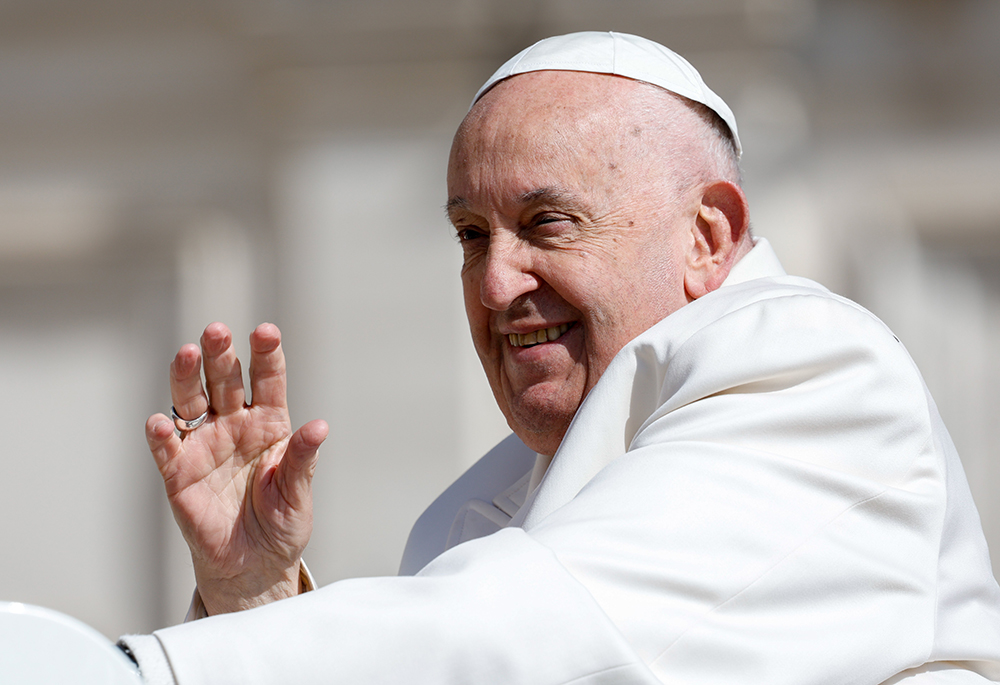
Pope Francis greets people as he rides the popemobile around St. Peter's Square at the Vatican April 25. Francis sent a brief letter to Drachma Parents April 30, responding to their criticism of a Vatican document that condemned gender theory and gender-affirming surgeries. Their original letter to Francis was dated April 23. (CNS/Lola Gomez)
Pope Francis has written to a group of Maltese parents of LGBTQ persons, in response to their criticism of a recent Vatican document that condemned gender theory and gender-affirming surgeries. The pontiff told the parents he received their critique with an "open heart."
On April 30, Francis sent a brief letter to Drachma Parents — an outgrowth of a ministry seeking to provide welcome spaces for LGBTQ Catholics and other people of faith — praising what he described as their "very beautiful and good" work.
Both the pope's letter and the original correspondence from the Drachma Parents have been reviewed by the National Catholic Reporter, and Drachma has asked that the full contents of Francis' correspondence remain private.
In their original April 23 letter to Francis, Drachma alleged that the Vatican text, released on April 8 and titled Dignitas Infinita, makes it more difficult for transgender Catholics and their parents to remain in the church and fails to understand the concrete realities of such families. Further, they argued that the Vatican declaration makes it more difficult for parents to accompany LGBTQ children, fails to recognize the complexity of issues around gender and sexuality and is inconsistent with the pope's own approach of pastoral outreach.
Their three-page letter began with effusive praise of Francis, including his December 2023 decision to allow priests to bless individuals in same-sex relationships, his support for decriminalizing homosexuality and his own personal outreach to LGBTQ individuals, including inviting trans women for lunch at the Vatican.
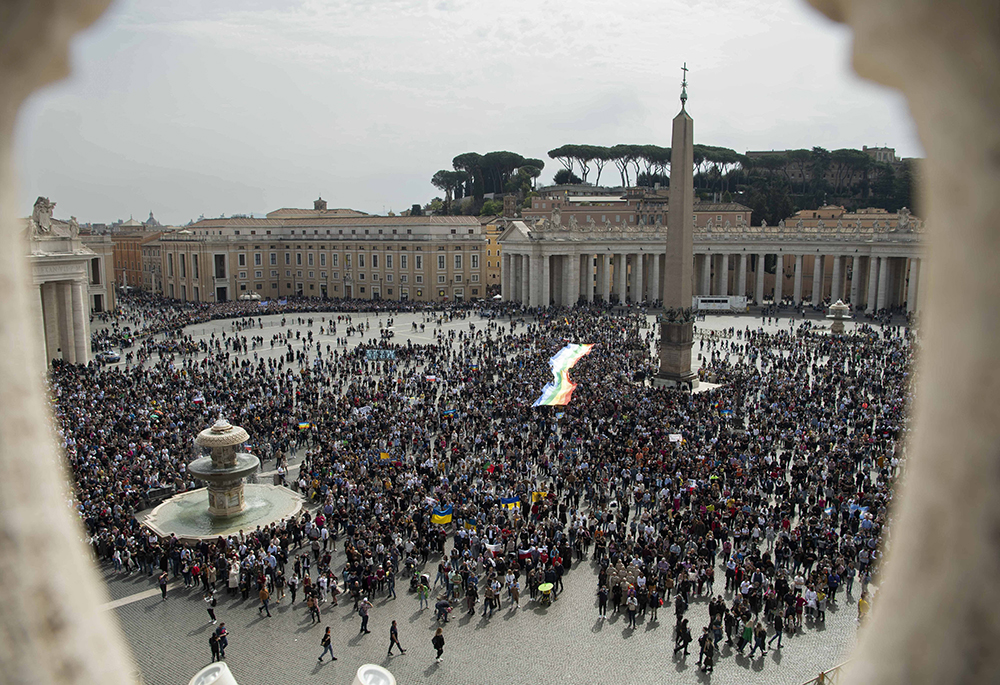
A rainbow peace flag is seen in St. Peter's Square as Pope Francis leads the Angelus from the window of his studio overlooking the square March 27, 2022, at the Vatican. (CNS/Vatican Media)
According to Drachma Parents, the letter was hand-delivered to Francis by Fr. Andrea Conocchia, an Italian parish priest known for his work among various marginalized groups, including transgender Catholics.
But, the letter argued that there is a "grave risk" that five paragraphs in the 12,000-word Vatican document could undermine these initiatives and "once again push trans people to the periphery and so remove that small shaft of light they might have found to make them feel whole."
Released by the Vatican's doctrinal office, Dignitas Infinita ("Infinite Dignity") was intended to broaden the scope of what the Catholic Church considers to be "grave violations" to human dignity, beyond only questions of sexual ethics. At the same time, among a specific list of violations to human dignity, the text includes gender-affirming surgery, gender theory and surrogate motherhood alongside issues such as war, migration, poverty and sexual abuse.
Advertisement
Among the criticisms raised in the letter to Francis are:
- Concerns of possible rising homeless rates of transgender children being kicked out of their homes, often motivated by religious convictions;
- A potential increase in hate speech, discrimination, violence and transphobia as a result of the Vatican's document;
- The decision to include gender theory and medical interventions for transgender people as potentially morally on par with poverty, war, human trafficking, the abuse of migrants, abortion, and clergy sexual abuse;
- A failure to recognize that transgender persons are seeking physical and mental integrity;
- A lack of scientific or theological studies cited within the Vatican document.
The parents' letter goes on to call for an international symposium to be organized on the themes of sexual and gender diversity that includes LGBTQ persons and their parents, scientific researchers and theologians to "explore a more inclusive language and a better pastoral framework."
In an April 30 NCR interview, Joseanne Peregin, a founding member of Drachma Parents, said she had originally hoped the human dignity document would be an opportunity to clarify some of the language the church has used around LGBTQ issues.
In particular, she said the church's use of the phrase "intrinsically disordered" to describe same-sex relations "creates a ripple effect among many millions of faithful, because the LGBT reality is put in a negative framework."
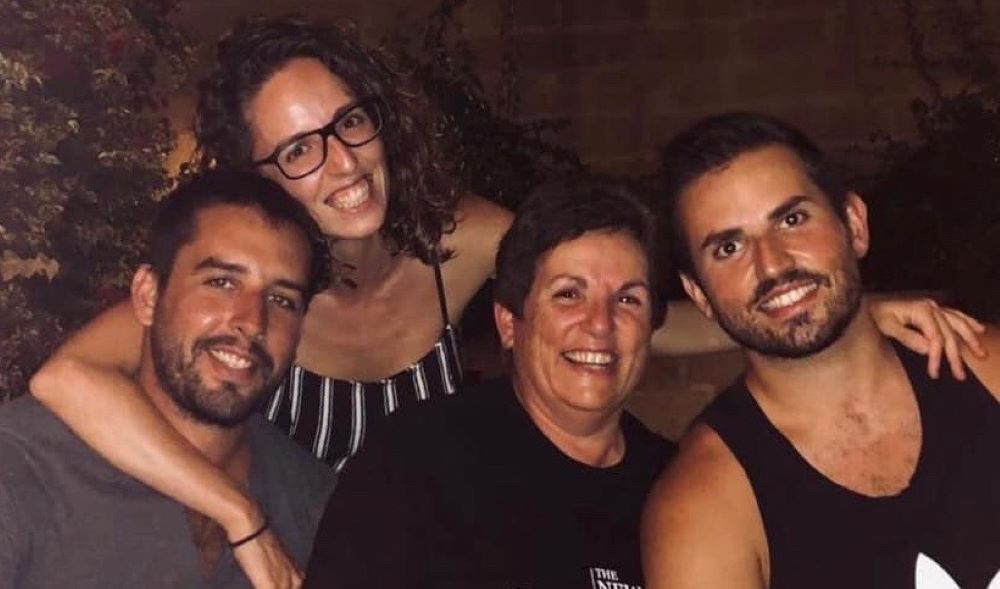
Joseanne Peregin, second from right, is shown with her children. Peregin, a founding member of the Drachma Parents' Group in Malta, said Cardinal Mario Grech softened his views of LGBTQ Catholics after attending a Drachma-sponsored lecture series in Rome in 2014.(Courtesy of Joseanne Peregin)
At an April 8 Vatican press conference promoting the document's release, Cardinal Victor Manuel Fernández, head of the Vatican's doctrinal office, did not disown the church's past language but said perhaps the description should be "conveyed in other words."
Peregin said that the pope's pastoral outreach to LGBTQ individuals over the years has been hopeful and "it had a ripple effect to show people they had a place in the church." Now, she says she worries this new document will have the opposite effect, especially for transgender individuals and their parents.
"Suddenly, this document makes [parents] question, 'Should I be walking with my child?' " she said. "This document may have had good intentions but it misses an opportunity to put a bit more clarity and, like a parent, have the humility to admit that it does not know enough and may still need to learn more."
At a time when the global church has prioritized synodality and the need to listen to the concerns of all Catholics, she specifically emphasized the need for a global forum within the church specifically on these issues.
"It could be a moment of grace if we have the humility to say, let's bring research together, let's try to build some hopeful vision for families," she said.
'This document may have had good intentions but it misses an opportunity to put a bit more clarity and, like a parent, have the humility to admit that it does not know enough and may still need to learn more.'
—Joseanne Peregin
Peregin, who is also a founder and president of the European Network of Parents of LGBTI+ Persons, drew a comparison to when before the release of "Laudato Si', on Care for Our Common Home," the pope's 2015 encyclical on the environment, the Vatican consulted with a range of scientific researchers and theologians on the question of climate change.
"We need a wide consultation with leading experts," on these issues, she said. "It's a chance to prove how credible you are or not."
Peregin herself knows firsthand what type of fruits this dialogue can yield, citing her own experience with Cardinal Mario Grech — the now head of the Vatican's synod secretariat — and his efforts to better understand the experience of LGBTQ Catholics and their families when he was bishop of Gozo, Malta.
As of now, she told NCR she is pleased with the pope's initial response and hopes that a deepening of the discussion may continue.
"We are determined to continue in our mission to support other parents and continue building a bridge between the LGBT+ community and our Church," the Drachma Parents' letter concludes. "Yes, we still call it 'our Church.' "





